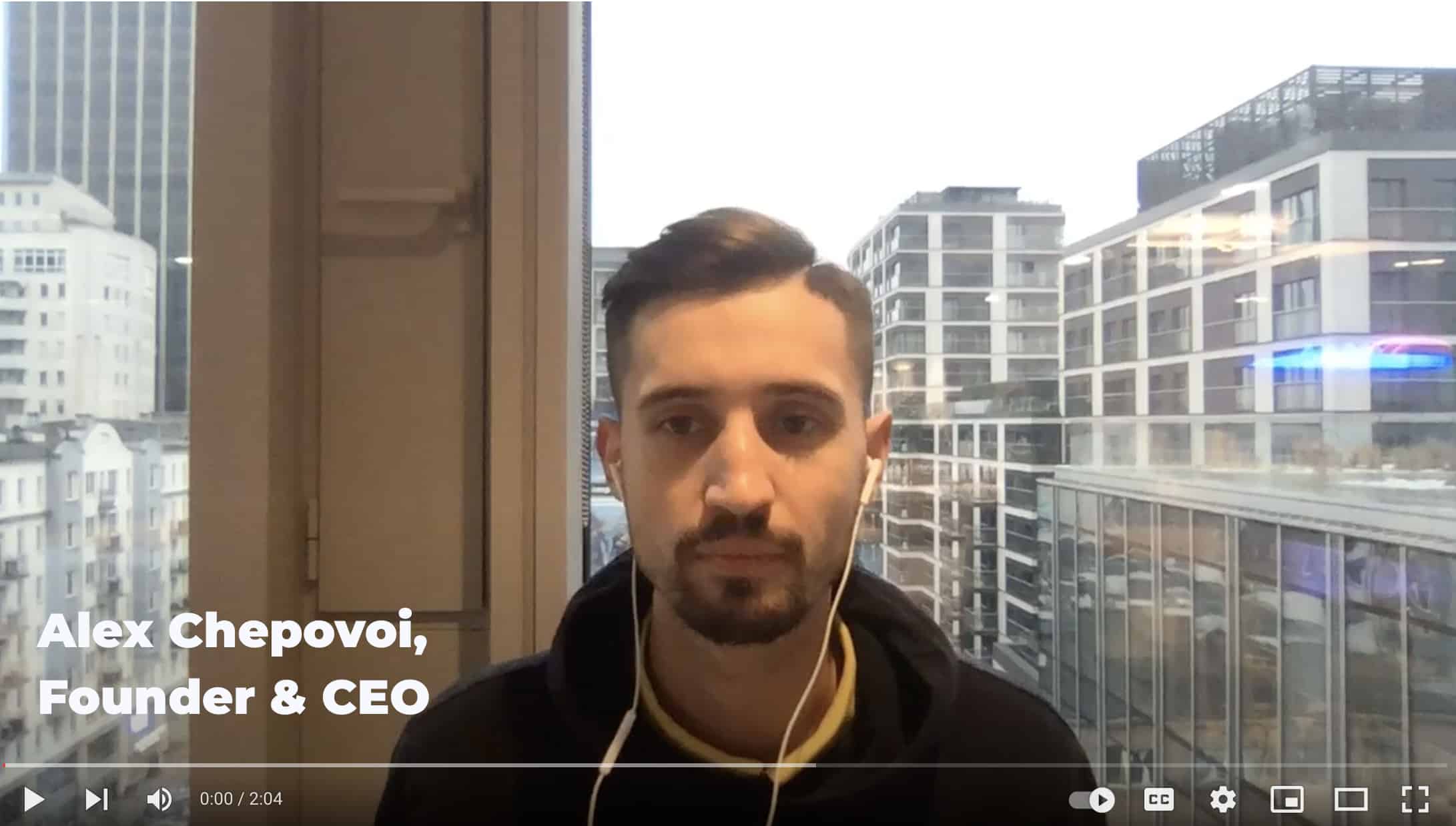Hire Symfony developers remotely within 3-5 days
You can hire Symfony developers remotely with Expert Remote. Sign up to access our talent pool. Search available developers, add them to vacancies and schedule interviews.


Hire Top 1% of Symfony Developers Today
Don’t have the time to search developers yourself?
How we do it
Thousands of developers across the world sign up to our platform each month
They go through our rigorous screening process and only 1% make the cut
We add the best candidates to our talent pool where they wait for projects
You can hire from this pool of world’s best developers on a contract basis, within days
Customer reviews
Frequently Asked Questions
Are you an Agency?
Nope.
Well, some clients call us a virtual agency or an agency 2.0 🙂
1. Typical agencies take 50-70% from a developer salary. We take only 15-30%.
2. Agencies have 10-20 developers on their bench (available). We’ve got 500+ devs.
3. Agencies don’t allow developer buy-out. You can hire our developer in-house after 1 year for “2-month salary” fee.
Will I have a contract with a developer or with Expert Remote?
With Expert Remote.
It’s risky to have 5 contracts with 5 remote developers from 5 different countries.
You’ll have a single B2B contract with our company. So, if smth goes wrong with IP or anything, you can always sue us :)
P.S. Our company is registered in the USA and Poland.
How does the pricing work?
Each developer has their own hourly rate with our commission already included.
We take between 15% and 30% from what you pay, which is 2-3x lower than typical agency fees.
No setup fees. You only pay after you hire a developer.
2-week paid trial. If you don’t like our developer after 2 weeks, we’ll apply a 25% discount on the hours worked.
1-week notice. You can ask for a replacement or cancel the contract within a week.
Which countries are your developers located in?
We source developers across 30+ countries.
Most popular countries: Armenia, Georgia, Poland, Serbia, Albania, Azerbaijan, Turkey, North Macedonia, Romania.
We also got developers in the USA, Canada, UK, Germany, France, Spain, Estonia, Bulgaria, Netherlands, Pakistan, India, Kenya, Nigeria, etc.
What are your average rates?
Rates start from $20/h. The median average is $35-40/h.
There’s always top 10% percentile candidates who are overpriced, and bottom 10% percentile underpriced ;) But most fall into the market rate category.
The beauty of global sourcing is tapping into unknown regions. Have you heard of North Macedonia? You can find senior developers for $25/h (our fee included)!
How do you ensure developer quality?
We source developers with marketing, which is 20-30x more effective than Linkedin. This creates us a huge flood of candidates.
Then we take this top of the funnel and feed it into our proprietary vetting process. Only top 1% of candidates make it through.
Part of the process is automated, which allows us to do it at scale. For instance, our recruiters have their calendars fully booked and able to conduct 200-250 soft-skill interviews a month.
What tech stacks do you have?
We have developers across all major stacks.
Back-end: Node.js, PHP, Python, JAVA, .NET, Ruby, GoLang etc.
Front-end: React, Angular, Vue.js, etc.
Mobile: Swift, Kotlin, React native, Flutter, etc.
AI/ML/Data Science is a big stream for us: machine learning, deep learning, NLP, computer vision, etc. Technologies: TensorFlow, PyTorch, Terraform, Pandas, AzureML, OpenCV, etc.
Can I hire the whole team?
Yes!
Apart from developers we’ve got UI/UX designers, QAs, Product Managers, etc.
Based on your requirements we can assemble the whole engineering team.

11 min read
Hire Symfony Developer
Symfony is a free, open-source bundle of reusable PHP components and an application framework. It is used by over 111,000 websites, including some of the most popular in the world like Trivago, BlaBlaCar, Spotify, and Vogue.
The popularity and adoption rate of Symfony has skyrocketed in recent years — and for good reason: it’s easy to learn, powerful, and efficient. If you are looking for Symfony developers for your next project or want to hire Symfony developers for your existing team, we can help.
Symfony Framework: Overview and Benefits
Symfony is one of the most popular PHP frameworks used by software companies around the globe. It was created by SensioLabs in 2005. Symfony uses a hierarchy of classes, which are organized into namespaces, and allows developers to create reusable code.
Symfony employs the Model-View-Controller (MVC) architecture pattern to separate the front end from the back end development on both sides of an application. The model handles data manipulation tasks, while the controller acts as an interface between the two systems responsible for displaying content on a website or mobile app. The view acts as an intermediary between these two Symfony components by receiving information from both ends and formatting it into a visually appealing layout that users can understand easily.
The framework powers everything from simple websites to complex enterprise systems. Symfony helps developers build great applications by providing them with a set of tools that can be used together or separately. These tools include:
- Flexible Dependency Injection Container (DIC)
- Powerful Routing system
- Elegant template engine called Twig
- Event dispatcher that allows you to easily manage events in your web applications, even if they’re built from multiple services
- Powerful console component for rapid PHP development and testing
High Speed of Performance
The main benefit of using Symfony is that it has been proven to be one of the fastest PHP frameworks available. Symfony allows developers to create fast and secure web applications with minimal effort. Its loading speed is 1.8 milliseconds which makes it the fifth-fastest framework on the market right now.
If you’re thinking about starting up a company, website speed will be critical to your success. If your site goes down while people are trying to buy something from you or sign up for your service, they’ll go somewhere else.
The loading speed of your website has a direct correlation to its conversion rates. In a study done by Portent, they found out that if a website’s loading speed drops from 1 second to 4 seconds, the potential sales from 1,000 visitors can drop by $1,190.
Adaptability and Configurability
The Symfony framework is flexible and configurable, which makes it easy to use for small startups and large organizations. It lets you build your custom website from scratch or use ready-made components. You can get started quickly with your development project, and there are plenty of options when it comes to updating your site.
Symfony is built on a set of decoupled components that can be swapped out for other tools, depending on the technical needs of your application development process. It makes it easy to customize and configure the framework to meet your core business goals. Symfony’s dependency injector and event dispatcher make it possible for each of the bricks to operate independently. Symfony is a 3-in-1 framework:
- Full-stack development (complete version). If you want to develop a complex application, it may be hard to find all the necessary functionalities in one package. Symfony ensures that you have everything you might need for the development of your solution.
- Brick-by-brick development. You begin with a basic framework and add additional functionality as needed. It allows you to build your custom version of the framework by including only those bricks that are relevant to your application.
- Microframework development. A specific function can be developed using Symfony alone.
For example, if you’re working with a startup that has limited resources, the PHP Symfony framework will allow you to build an application quickly and efficiently without having to invest in complex development tools.
Expandable Nature
One of the main advantages of using Symfony is its ability to create bundles. They are special plugins that help developers build web apps faster. If your company needs to add functionality or take away functionality, you don’t have to do a complete overhaul of your system — you just add or remove bundles.
The ability to add new features is extremely important for a growing startup. Bundles allow you to reuse code across different applications or projects by pulling it into one place. It allows you to focus on what matters most: the functionality of your app.
Solid Support System
One of the great things about Symfony is the community support it offers. With a vibrant community of 45 partners supported by SensioLabs, the framework gives users access to information on the latest tools and methods for web development.
When you sign up for Symfony, you’re guaranteed thorough testing, regular updates, and enhanced application performance. It’s a significant aspect for startups because they often need to go through several iterations before they find what works best for them. The support system ensures that once they’ve found their groove, they’ll have everything required from a framework in place. It allows them to scale quickly and efficiently without worrying about whether their software will hold up under pressure over time.
Types of Projects That Would Benefit from Symfony
The PHP Symfony framework is ideal for a project that requires the ability to scale quickly and efficiently. Some of the most popular types of development projects that use Symfony include:
- Complex web solutions. It provides a support system and a wide variety of tools to ensure that your project can scale quickly and efficiently. The framework is also perfect for projects that require numerous developers working together.
- Enterprise applications. This type of application is often large-scale, which makes it ideal for use with Symfony. It will provide the support and structure you need to scale your project efficiently over time.
- APIs and microservices. A lot of companies are moving towards a microservice architecture, which is a type of application design that breaks down large web applications into smaller pieces. Symfony offers a wide range of tools that can be used to build APIs, including support for JSON and XML formats.
- Modifying existing solutions. One of the most common reasons for using Symfony is to fix a bug or security flaw. The framework offers a set of tools that can be used to make changes more easily, including an object-relational mapper (ORM) that automatically maps database tables to objects. By updating the bundles regularly, you are ensuring that they remain secure and effective.
If you’re an entrepreneur or leader of a company and wish to reach business growth by delivering successful custom solutions, then you can hire Symfony engineers who will create successful projects for you.
How You Can Hire Symfony Developers
If you’re looking to hire Symfony developers, the first thing you’ll want to do is to find someone who has experience with the framework. The best way to do that is by checking out their portfolio and asking about clients they’ve worked with. If they have a blog or other online presence, check out what projects they’ve worked on in the past and the tech stack used.
It’s crucial to hire smart since Symfony developers will be responsible for creating your application, and they will represent a part of your agile dream team. Understanding the responsibilities of Symfony programmers is the first step to finding the right person that will fit into the position.
Symfony Developer Job Responsibilities
A Symfony developer will typically be expected to fulfill the following responsibilities:
- Build/deploy back-end/front-end code
- Integrate databases
- Write clean, reusable code
- Do troubleshooting and debugging
- Run UI tests
- Working in an agile environment
Tech stack for a Symfony developer includes:
- Symfony Framework
- PHP (Laravel, CodeIgniter)
- MySQL or Postgresql
- Composer
Symfony developers usually work with other developers and designers on a project. To work well, a development team must be able to communicate effectively. A Symfony developer will typically work under the direction of a manager or team lead developer who assigns tasks and reviews their progress throughout an application’s development cycle.
Interviewing a Symfony Programmer
To hire a great PHP Symfony programmer, you need to know what kind of experience you need for your project. You also need to be able to evaluate a candidate’s competency and skills, so you make sure they’re the right person for your project.
Evaluating Junior Specialist Competency
In terms of technology, junior Symfony developers must know the basics of Symfony and have some experience in PHP programming. A junior Symfony developer should also have experience working with relational databases, such as MySQL or PostgresSQL. The following are some of the common questions you might ask a junior Symfony developer:
- What is Symfony?
- What makes Symfony stand out from other software frameworks?
- How would you describe your problem-solving skills?
The questions can vary depending on your project’s needs.
Evaluating Middle Specialist Competency
Middle specialists are experienced in Symfony, have a good understanding of the architecture, and are capable of working on complex projects. Skilled developers should be able to work independently with minimal supervision and mentor junior developers. Their skills also include advanced programming languages ( C# and Java).
Questions you can ask a middle Symfony developer:
- What are the benefits of Composer?
- What is your experience working with relational databases like MySQL or PostgresSQL?
- Have you worked on complex projects with Symfony?
They must be able to describe them and share some of the challenges that they faced.
Evaluating Senior Specialist Competency
A senior PHP developer should have at least four years of experience using Symfony. A dedicated Symfony developer should be able to create their apps and contribute to open-source projects. Here are some questions you can ask a senior Symfony developer:
- What is your experience working with Symfony?
- What is your experience with complex development projects using Symfony?
- Have you contributed to open-source projects that use Symfony?
How Much Are Symfony Coders Typically Paid?
In USA Symfony developers are typically paid above the average market rate. Hiring managers should expect to pay between $90,000 and $130,000 per year for a senior-level web developer with three to five years of experience.
If you’re looking to hire a fresh graduate with no experience, you can expect to pay around $60,000. Their annual salary may jump up as they gain more skills and work experience in the field of web development with Symfony frameworks.
| Position | Hourly rate | Yearly rate |
| Junior Symfony developer | $30–$40 | $60,000 |
| Middle Symfony developer | $40–$70 | $90,000 |
| Senior Symfony developer | $60–$120 | $130,000 |
If you’re looking for a Symfony developer, we can help. Contact us to learn more!





